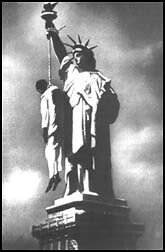Seek knowledge, even as far as China
-well known saying attributed to the prophet Muhammad
I've been reading the I Ching these days. I have a couple of different translations. One of them is the "Taoist I Ching" by Thomas Cleary (who has also translated the Quran, the sayings of the prophet [saaws] and a collection of the sayings of Ali [ra] called "Living and Dying with Grace).
The I Ching is used by some people as a form of divination, but Cleary suggests that this is a corruption and a misunderstanding of its original purpose as a book of wisdom.
In fact, one could speculate that the I Ching could be a "kitab", i.e. a version of a revealed book given to one of the earlier prophets. Some might object that the concepts of Chinese religion don't seem to fit into an Islamic framework, there are a number of works out there which strongly make the opposite case. The most popular work along these lines has got to be Tao of Islam by Sachiko Murata (also a favorite among many bloggers on the Su-Shi webring)
The book persuasively makes the point that in the Islamic tradition there are many different examples of pairs of opposites which are held in some kind of tension which is not dissimilar to the Chinese idea of Yin and Yang. (Heaven and Earth, the Pen and the Tablet, the Right and Left hand of God, Immanence and Transcendence, Mercy and Wrath, Male and Female, Khalifatullah and Abdullah,etc.) So perhaps Chinese thought isn't incompatible with Islam and its just a matter of properly "translating" the concepts from one "language" to another.
(And here is a second review for Tao of Islam by Muhammad Legenhausen)
Actually a similar point is made by another work by Sachiko Murata, Chinese Gleams of Sufi Light which contains translations of certain historically significant texts by Chinese Muslims but also discusses how the Muslims chose to borrow some of the pre-existing concepts of Buddhism, Taoism and Confucianism in order to explain and express Islamic teachings.
And thirdly, there is also Sufism and Taoism: A Comparative Study of Key Philosophical Concepts by Murata's teacher, Toshihiko Izutsu, which compares and contrasts the thought of Lao-Tzu with that of Ibn Al-Arabi.
All these works serve to bridge the apparent superficial differences between Islamic and Chinese thought. And I would suggest, point to the possibility that many of the classics of Chinese philosophy might be kitabs which can be read fruitfully by Muslims for their benefit.

